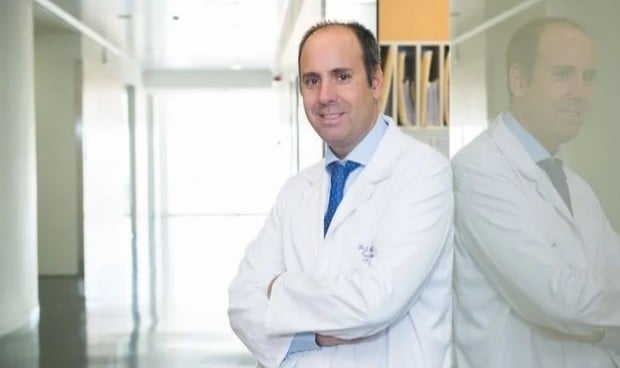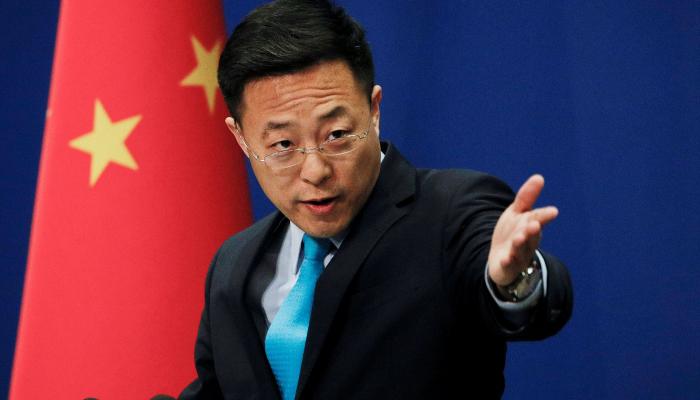Javier Cortés, doctor and first author of the same and director of the International Breast Cancer Center (IBCC).
The International Breast Cancer Center (IBCC) has recently managed to give a hit of effect to treat patients with triple breast cancer advanced negative with PD-L1 expression. Combining immunotherapy, chemotherapy and the pembrolizumab drug even better 27 percent overall survival with expression of PD-L1but the IBCC now seeks to go a step further. Javier Cortesdirector of the IBCC, wants to continue optimizing treatments against triple metastatic breast cancer and affirms in Medical Writing that “next year we intend to present the results of a new triple combination of chemotherapy, bevacizumab e immunotherapywith data from 100 patients very promising, regardless of PD-L1 expression and that may mark a new milestone in the fight against this disease. I estimate that this combination will achieve between a 75-80 percent effective compared to 50 percent offered by conventional therapy: chemotherapy and immunotherapy”.
The bevacizumab It is a therapeutic alternative for patients who do not overexpress PD-L1 in Europe, so the team led by Cortés has set to work to find out in detail the scope of this new combination: “At the moment, we are involved in optimize treatment of immunotherapy in two aspects: The first is with the combination of immunoconjugates or Trojan horses and the second is thanks to the combination with antiangiogenic”.
|
“We must not only optimize which patients are going to benefit from the strategy, but also not give a drug to those who are not going to get better” |
The biomarker PDL-1 is expressed in metastatic triple-negative breast cancer in about 45 percent of patientsso Cortés sees as a need seeking new biomarkers: “For now, we only know of one, so we have to continue betting on research to develop more and better biomarkers, which allow optimize not only which patients they will benefit more of this strategy, but also to try not give a drug for patients who they will not improve”.
Although the results of the study Keynote-355published in the scientific journal The New England Journal of Medicine (NEJM), have been more than positive, Cortés is aware that immunotherapy generates side effects y inflammatory pictures that cannot be overlooked: “These are scenarios that we had already known about pathologies such as melanoma or the lung cancer and that, in general, the severity is mild. However, the most important thing is to diagnose these side effects as soon as possible, to be able to give effective treatments. As for the preventive treatmentthere are lines of research in this field, but we still do not have results that can be applied in the clinic”.
Immunotherapy, a new compass against breast cancer
The immunotherapy has gained great relevance to combat breast cancer, and this aspect wants to be squeezed to the maximum by the oncologist: “The only drug that has been shown to increase survival, as we have shown in this work, is the pembrolizumab. I’m convinced that new drugs Immunotherapeutics and new combinations will continue to be explored and will also see the clinic in the coming years. The most important thing is that, for the first time, we have seen how immunotherapy increases survival in metastatic triple-negative breast cancer and, therefore, this strategy must be considered as a new standard treatment for these types of patients. I am convinced that also for many others in the future”.
|
“Immunotherapy must be considered a new standard treatment for this type of patient” |
A new era marked by immunotherapy is changing the approach to triple negative breast canceressential in the cure of patients. “The results achieved have meant a before and after in the first line of this disease. In fact, at this time, in patients who have PD-L1 expression, immunotherapy is considered standard treatment and any new therapeutic strategy It has to be better than this. Therefore, we are facing, without any doubt, a new scenario of the disease in which therapy is going to play a fundamental role”. –
Although it may contain statements, data or notes from health institutions or professionals, the information contained in Medical Writing is edited and prepared by journalists. We recommend the reader that any questions related to health be consulted with a health professional.

